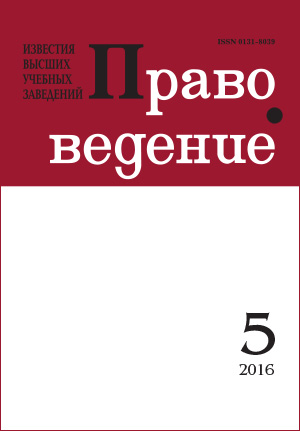Mind and rights: neuroscience, philosophy and the foundations of legal justice
Abstract
The central question in this article is about the actual relationship between human thought, its structure and exercise, and the idea of human rights, which is surely among the most important products of human thinking. While searching answer to this question number of other ones were considered. The first question was: Why does the theory of mind matter for ethics and law? To answer the second question — What precisely are we talking about? — the concept or idea of a human right as a subclass of moral and legal subjective rights was outlined and clarified. Much attention is occupied to the third question that is: Where do rights come from? The answer to this question is important for the essential understanding why answer to one of the two currently particularly interesting fundamental forms of human rights’ revisionism, the historical and genealogical attack on human rights, necessarily leads going beyond the limits of human rights history in the deep waters of the epistemology and ontology of human rights. Also the fourth question: Why are rights justified? — was considered. Finally, after having sufficiently prepared the ground by the preceding remarks, it is mentioned to the core issue of these reflections such as: What is, after all, the importance of the theory of mind for the project of human rights? Here the second fundamental challenge to the idea of human rights is discussed. This attack stems from the quarters of today’s neuroscientific neo-emotivism, which is interesting by itself and has the advantage that the critique of this form of human rights revisionism gives considerable heuristic merits for a constructive account of the theory of mind and the foundations of human rights. The article ends with the disclosure how a theory of human rights could draw from the theory of mind, and more concretely, take from a mentalist point of view in ethics and law.
Keywords:
human rights, human rights history, theory of mind, moral cognition, neuroscience, dual-process model of the mind
Downloads
References
Downloads
Published
How to Cite
Issue
Section
License
Articles of "Pravovedenie" are open access distributed under the terms of the License Agreement with Saint Petersburg State University, which permits to the authors unrestricted distribution and self-archiving free of charge.




